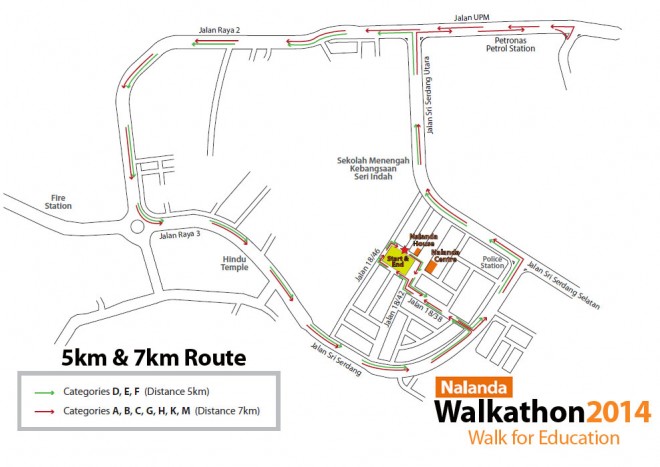On Sunday 2 March, participants of the ‘Svagatam’ Induction Programme gathered at Nalanda Centre for their third session of joyful learning. Sis. Nandini Tan shared about the true meaning and right attitude of ‘Taking Refuge in the Three Jewels’. This was followed by an enlightening tour of Nalanda’s main shrine – ‘Vihara Sri Suvarnabhumi ’. Participants were delighted to learn the real spirit of ‘Taking Refuge’, and to know the rich Buddhist symbolism incorporated into the interior design of Nalanda Centre. Sadhu!
Read more‘Nalanda Patron’s Day’ is an annual programme to commemorate and appreciate all donors, benefactors and volunteers who have contributed tremendously to the growth of Nalanda, and by extension, to the development of Buddhist education.
Read moreDear friends, Episode 6 of NalandaTV is now available for your viewing here! The release of this episode was originally scheduled for 8 March, but was pushed back until now as the country was in shock over the disappearance of MH370.
Episode 6 features recent programmes organised by Nalanda Dharma School and Nalanda Youths. There are also reports on the Sungai Petani Branch AGM, Berjaya Founder’s Day, and interviews with Nalanda officers.
Please click on the screen below to enjoy the broadcast, and do SHARE it with your family and friends. Let’s support and encourage the efforts of Nalanda Youths in producing this episode of NalandaTV. Thank you!
As early as 6.30am today, volunteers and participants gathered at the Sri Serdang field to show their enthusiastic support for Nalanda Walkathon 2014. A total of 1,411 participants turned up for the wonderful event despite the hazy and wet conditions.
Read moreThe air was filled with high spirits and determination when participants of all ages came together to support Nalanda’s “Walk for Education” in Taman Sri Serdang. The walk was flagged off at 8am by popular radio deejay, Mr. Chan Foong.
Read moreMore than 600 out of 1,537 people who registered for Nalanda Walkathon 2014 have arrived at Nalanda Centre Sri Serdang by 7.15am! We are looking forward to welcoming the rest of the participants to flag off the walk at 8.00am. Keep updated on Nalanda Walkathon 2014 by visiting our Facebook page at www.facebook.com/nalanda.org.my . Thank you!
Read moreNALANDA WALKATHON 2014 is just one day away on SUNDAY, 16 MARCH. Join this “Walk for Education” to raise funds in support of holistic education for needy Malaysian students.
Read moreThe 20th Issue of Nalanda Bulletin was released earlier today! Get a copy from Nalanda Centre or any NEO Centres near you, and read about recent news and updates on Buddhist programmes and activities. We thank our earnest Communications and Editorial teams for again giving us the pleasure of reading the Nalanda Bulletin. Sadhu anumodana!
Read moreThe UPM Buddhist Society (PBUPM) members concluded their weekly gathering at Nalanda Centre tonight by extending kind thoughts for the missing 239 people on board MH370. Empathizing with the anxiety and anguish experienced by the victims’ families, PBUPM members rallied around to provide this gesture of moral support! Let us all continue to pray for the victims and their loved ones. May we soon hear positive news in the search for MH370.
Read moreThe Nalanda Chinese-Language Communications Team was formed a month ago to publish news articles in Mandarin. The team’s objective is to propagate Dhamma and communicate more effectively with Mandarin-speaking communities. The team launched a Chinese Facebook page 10 days ago on 5 March, which has since garnered more than 370 ‘Likes’.
Read more

